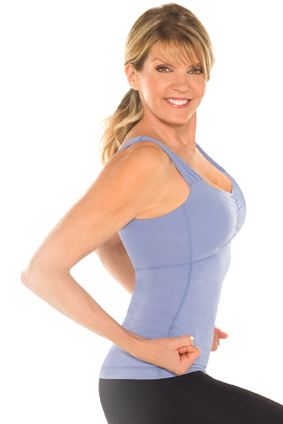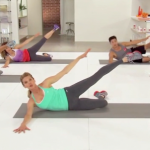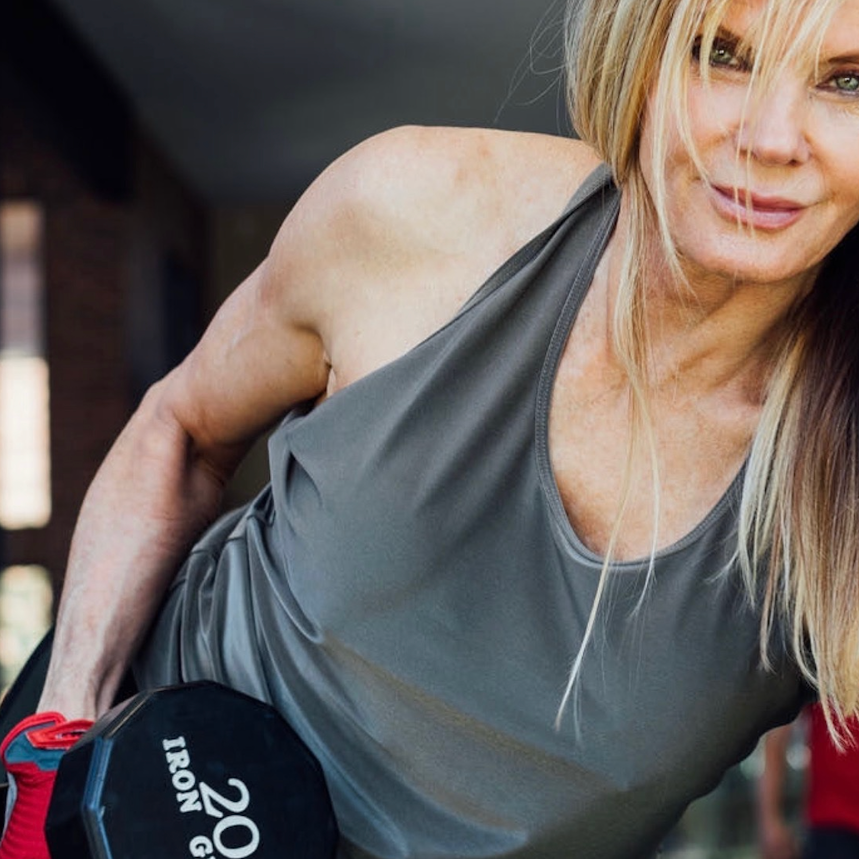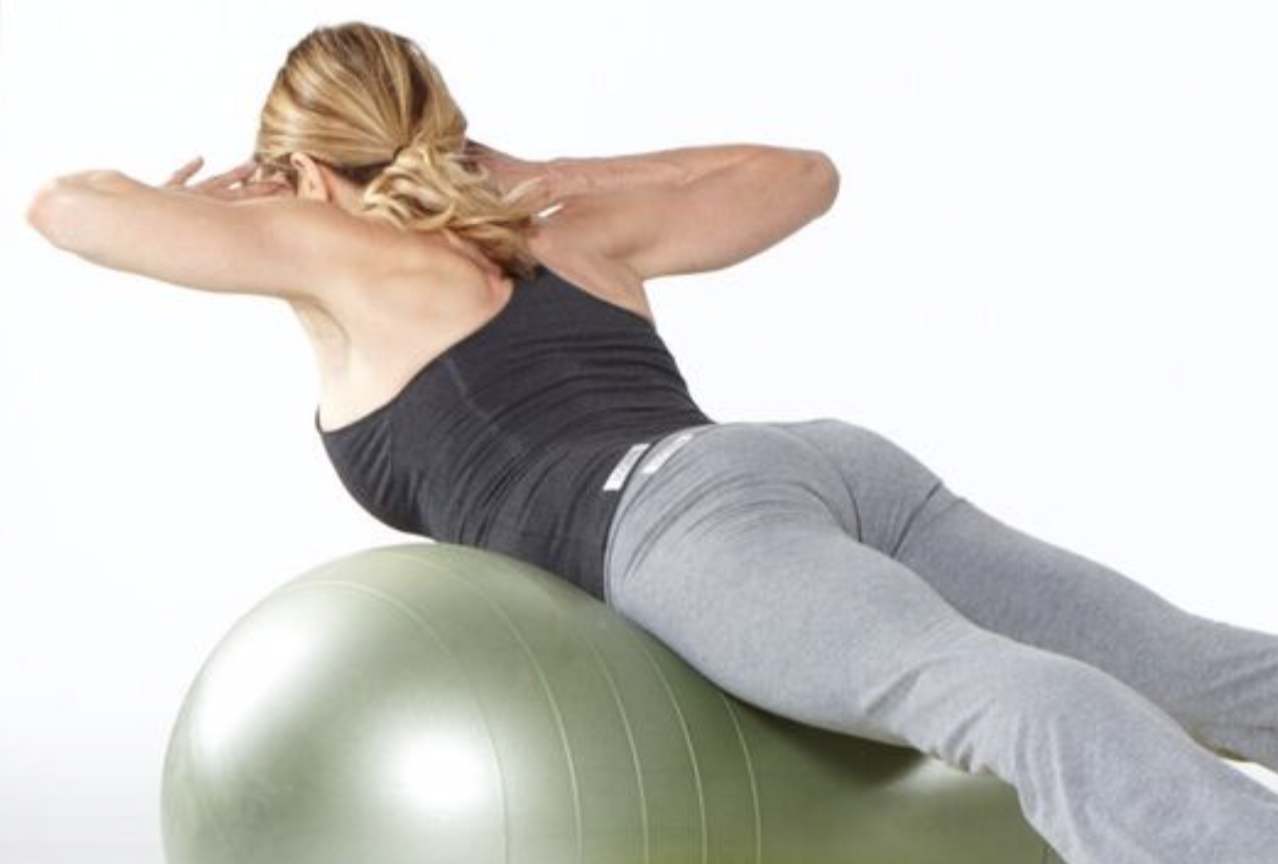Workout Recovery: The Secret To Bouncing Back
 Recently at the IDEA Convention, someone asked me an interesting question: “What do you think the most overlooked aspect of fitness is?” I gave it some thought – there are a lot of possibilities here, after all – but I came up with a quick answer: Recovery.
Recently at the IDEA Convention, someone asked me an interesting question: “What do you think the most overlooked aspect of fitness is?” I gave it some thought – there are a lot of possibilities here, after all – but I came up with a quick answer: Recovery.
Recovery from workouts has been on my mind a lot lately. With my daughter Kate training in track for the Olympic trials, we’ve seen firsthand just how crucial proper recovery is when it comes to exercise. The day after a tough workout, recovery is what marks the difference between feeling rested and ready to come back for more, or feeling sluggish, tense and maybe even injured.
But recovery isn’t just key for elite athletes – it’s important to the rest of us “aspiring athletes” as well..especially as we grow older. Imagine two people with similar physiques doing the exact same workout at the gym. They’re both pushing themselves, really going for it. But the one who’s really going to see the results is the one who knows what to do AFTER the workout is over:
- It’s all about the window. You’ve often heard me say that “it’s not just what you eat, but when you eat.” That means eating a good breakfast to jumpstart your metabolism, and eating smaller meals more frequently to keep that metabolism humming. But it also means eating a good meal after your workout. A 2008 study shows that proper nutrient intake after exercise increases improvements in muscle mass and bone formation in postmenopausal women. Here’s why: After a tough workout, our bodies are in a state of minor shock – but it’s a terrific opportunity, because this is when your body has the potential for greater nutrient absorption, and when you take in the right nutrients, that means a faster, healthier recovery.
- Carbs are a good thing. In spite of their controversial reputation, carbs can be your best friend when it comes to post-workout meals. When you exercise intensely, you deplete your body of glycogen, which needs to be replenished before your next exercise session – and the key to replenishing that glycogen is carbohydrates. Depending on your bodyweight, activity and weight loss goals, you might shoot for a post-workout meal consisting of 30-40 grams of carbs…with some protein thrown in there as well. Which brings me to my next point:
- Whey is the way to go. High-quality protein is essential for a good post-workout meal, and should make up about 25% of the calories you eat at that time. For most people that’s around 10-15 grams (but again, this depends on your own body’s particular needs). Protein helps build and maintain muscle tissue, and provides amino acids, which are essential for recovery. And where should that protein come from? My friend Dr. Mercola wrote an article recently about whey protein, which he calls “the gold standard of bioavailable protein.” Since there is a small window after exercise in which you can take in the nutrients you need in a way your body can use them properly, whey is ideal because it gets to your muscles just 10-15 minutes after you swallow it. And it can be downright mouth-watering: Try blending up a scoop of isolated whey protein powder with a cup of unsweetened almond milk, a cup of frozen blueberries, and a tablespoon of flaxseed oil. (Not only is the flaxseed great for your heart, but research suggests that the omega-3 fatty acids in flax can actually help stimulate the muscle-building process.)
- Don’t forget to earn it. We can’t overlook the “workout” part of the “post-workout meal.” For a complete home-gym-in-a-box that will help you sculpt a stronger, leaner body, try my Total Body Strengthening Kit. It combines 3 DVDs and all the tools you need to tone your upper body, lower body and core. And when you’re finished – bon appetit! – it’s time for your oh-so-essential post-workout meal. After all, if you’re going to put in the work, don’t you want to reap all the benefits?









Dear Kathy
I have been following your exercise routines for the last 6 years. I have also purchased all your dvds, as and when it is available in Malaysia( where i live). I exercise everyday using your dvds.
I just wanted to thank you sincerely for introducing your method of exercise to everyone. You changed my life.
I have been using your workouts since I was in my teens. I love how you are not just working out but you are concerned that we are doing them correctly and effectively. The comments that you make throughout the workout and at the end of them, really shows that you are concerned about health and not just weight loss. Thanks for all the hardwork that you have put in over the years. Many of us are still reaping the benefits.
I have the book: Feed Muscle, Lose Fat which recommends egg white protein powder. Above article though suggests whey. Which is best for a female, over 50 who would like to lose around 5-10 pounds and tone up? Extra pounds seem evenly dispersed.
Then, which would be best for my 26 year old daughter who carries most of her extra weight in her belly? She is using egg now.
We are both well under 5 foot and of medium build.
Thanks so much for all the good information. Have many of your past & current DVD’s.
Cindy
.
I am a true Kathy”ite” since 1986. I have worked out with just about every instructor out there, but when it comes right down to it I always pull out my Kathy videos as a first choice. THANKS!
Kathy,I am very interested in your opinion of recovery. I have been trying to heal my plantar facittis. I did not listen to my body when training for a race. Can you give me some suggestions on how to recovery while still doing cardio. I love your kettlebell. It is incredible right now my abs are aching because I did your dvd yesterday and I am also recovvering from shingels of the eye. Do you have any suggestions to continue the cardio without hurting my food. Do you have any suggestions?